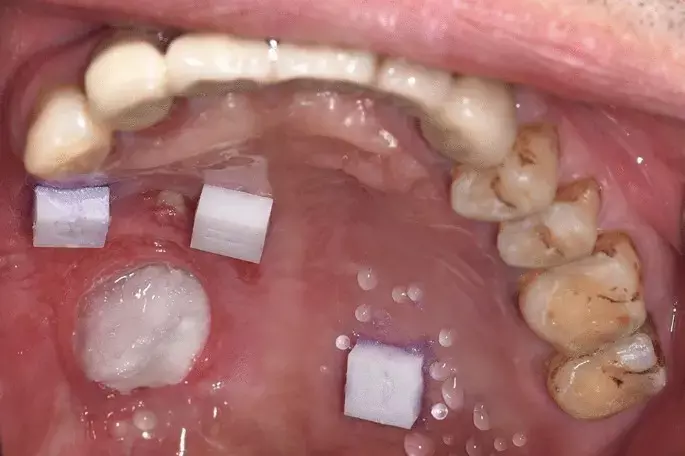- Home
- Medical news & Guidelines
- Anesthesiology
- Cardiology and CTVS
- Critical Care
- Dentistry
- Dermatology
- Diabetes and Endocrinology
- ENT
- Gastroenterology
- Medicine
- Nephrology
- Neurology
- Obstretics-Gynaecology
- Oncology
- Ophthalmology
- Orthopaedics
- Pediatrics-Neonatology
- Psychiatry
- Pulmonology
- Radiology
- Surgery
- Urology
- Laboratory Medicine
- Diet
- Nursing
- Paramedical
- Physiotherapy
- Health news
- Fact Check
- Bone Health Fact Check
- Brain Health Fact Check
- Cancer Related Fact Check
- Child Care Fact Check
- Dental and oral health fact check
- Diabetes and metabolic health fact check
- Diet and Nutrition Fact Check
- Eye and ENT Care Fact Check
- Fitness fact check
- Gut health fact check
- Heart health fact check
- Kidney health fact check
- Medical education fact check
- Men's health fact check
- Respiratory fact check
- Skin and hair care fact check
- Vaccine and Immunization fact check
- Women's health fact check
- AYUSH
- State News
- Andaman and Nicobar Islands
- Andhra Pradesh
- Arunachal Pradesh
- Assam
- Bihar
- Chandigarh
- Chattisgarh
- Dadra and Nagar Haveli
- Daman and Diu
- Delhi
- Goa
- Gujarat
- Haryana
- Himachal Pradesh
- Jammu & Kashmir
- Jharkhand
- Karnataka
- Kerala
- Ladakh
- Lakshadweep
- Madhya Pradesh
- Maharashtra
- Manipur
- Meghalaya
- Mizoram
- Nagaland
- Odisha
- Puducherry
- Punjab
- Rajasthan
- Sikkim
- Tamil Nadu
- Telangana
- Tripura
- Uttar Pradesh
- Uttrakhand
- West Bengal
- Medical Education
- Industry
Digital impressions comparable to conventional impressions for complete denture fabrication in maxillary edentulism: Study

Digital impressions comparable to conventional impressions for complete denture fabrication in maxillary edentulism suggests a study published in the BMC Oral Health.
The expectations for the clinical and laboratory phases of tissue-supported complete dentures (TSCDs) are changing. Currently, there is a trend towards fast, comfortable, reliable, and low-cost methods. In TSCD impressions, simplified impression and digital impression methods involving the use of an intraoral scanner (IOS) are becoming preferable.
Given this situation, this study aims to compare different conventional and digital impression methods used in TSCDs. Patients with maxillary complete edentulism and healthy oral mucosa were included in this study. In the digital group, two different impressions were made using an IOS (Trios4) without (D1) and with (D2) artificial intelligence scanning (AI-Scan). In addition, a modified impression (D3) was made using the IOS in two steps, including the occlusal rim.
In the conventional group, a two-step impression (C1) using an individual tray with zinc oxide eugenol and a one-step simplified impression (C2) using a stock tray with irreversible hydrocolloid were made. The comparison groups were determined to be C1-C2, C1-D1, D1-D2, and D1-D3. The best-fit algorithm was used to superimpose the impressions to be compared.
The right and left vestibular areas, postdam area, palatal area, right and left matching area, entire surface, and borders were evaluated separately. Results: Fifteen patients were included in this study. In the C1-C2 group, the mean deviation at the borders was statistically significant (p = 0.01). No regions in the C1-D1 and D1-D3 groups exhibited significant differences in the mean amount of deviation (p > 0,05). In the D1-D2 group, the mean deviation in the palatal area was significant (p = 0,03). In maxillary edentulism, digital impressions have shown comparable results to conventional impressions, suggesting promising implications for clinical applications.
Reference:
Kahya Karaca, S., Akca, K. Comparison of conventional and digital impression approaches for edentulous maxilla: clinical study. BMC Oral Health 24, 1378 (2024). https://doi.org/10.1186/s12903-024-05151-3
Dr. Shravani Dali has completed her BDS from Pravara institute of medical sciences, loni. Following which she extensively worked in the healthcare sector for 2+ years. She has been actively involved in writing blogs in field of health and wellness. Currently she is pursuing her Masters of public health-health administration from Tata institute of social sciences. She can be contacted at editorial@medicaldialogues.in.
Dr Kamal Kant Kohli-MBBS, DTCD- a chest specialist with more than 30 years of practice and a flair for writing clinical articles, Dr Kamal Kant Kohli joined Medical Dialogues as a Chief Editor of Medical News. Besides writing articles, as an editor, he proofreads and verifies all the medical content published on Medical Dialogues including those coming from journals, studies,medical conferences,guidelines etc. Email: drkohli@medicaldialogues.in. Contact no. 011-43720751


